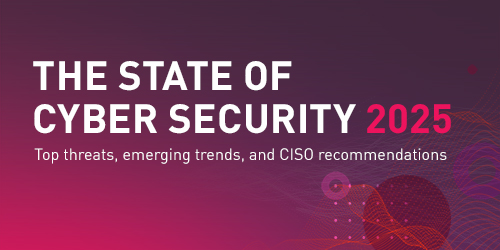How Does It Work?
Traditional secure email gateways (SEGs) are deployed along the path that emails travel. As emails are routed through the SEG, it inspects their contents for potential threats or privacy violations.
API-based email security solutions integrate with the corporate email solution, eliminating the need for in-line deployment. Instead, they can use the functionality provided by the API to access and examine the contents of potential emails. This enables them to detect potential threats or abuse of corporate email.
Using the same APIs, these security solutions can also take action against the malicious email. They can prevent phishing and other threats from reaching the inbox, alert on the potential threat, or even claw back delivered emails that were identified as malicious after the fact.
The Importance of API-Based Email Security
Phishing is a key part of many cyberattacks, used as a means of stealing user credentials or infecting corporate devices with malware, and API-based email security provides protection against these email threats in a way that SEGs can’t match.
Some key threats that API-based email security solutions protect against include:
- Business Email Compromise (BEC): BEC attacks involve attackers masquerading as a high-level executive within an organization in an attempt to trick employees into doing their bidding. SEGs often struggle with BEC detection because it requires context that isn’t available when solely inspecting inbound email. API-based solutions’ integration with an organization’s email solution provides the context necessary to accurately identify and respond to these threats.
- Email Account Compromise: Email account compromise attacks occur when an attacker gains access to the email account of a legitimate user. Since SEGs are deployed to inspect inbound and outbound traffic, they miss these internal threats. API email security solutions can monitor and secure all of an organization’s email communications.
- Post-Delivery Arming: Some email threat actors use post-delivery arming tactics, in which malicious functionality is deployed at a URL only after emails linked to it reach the inbox. Since SEGs can only inspect inbound emails, the threat emerges too late for them to address. API-based solutions enable malicious emails to be retracted after they have reached the inbox, protecting against this threat.
In addition to providing enhanced protection against some of the most significant email threats, API-based email security also provides support for post-attack forensics and remediation. After an attack has been identified, these solutions can help to collect information and investigate an incident. Their post-delivery retraction capabilities can also be used to help contain an incident by retracting unopened malicious emails from users’ inboxes.
Benefits of API-Based Email Security
API-based email security solutions offer all of the features of SEGs as well as other benefits, including:
- BEC/EAC Protection: API-based email security solutions can provide greater protection against BEC and EAC attacks than SEGs.
- Internal Email Protection: API-based solutions have the ability to inspect internal emails, rather than solely those crossing the network perimeter.
- Post-Delivery Retraction: These solutions can retract malicious emails from an inbox after delivery.
- Post-Attack Response: After an attack has been identified, API-based solutions support forensics and remediation.
The Biggest Challenge of API-Based Email Security
While API email security solutions offer greater protection than SEGs, they do face their challenges as well – the biggest being scalability. Since these solutions need to make API calls to access and inspect emails, the sheer volume of calls can overwhelm email solutions and increase latency at peak times. As a result, malicious emails remain in users’ accounts longer, increasing the potential of a breach.
Email Security with Harmony Email and Collaboration
Email is one of the primary attack vectors that cybercriminals use to gain access to an organization. Phishing emails can steal passwords, plant malware, or trick their targets into sending money to an attacker. However, traditional email security solutions — such as SEGs — don’t provide adequate protection against the leading email security threats.
Avanan — now part of Check Point Harmony Email and Collaboration — pioneered the use of API-based email security and has a patent on the ability to deploy inline, before the inbox, via API. Since then, it has maintained its lead in the space, offering features and performance unmatched even by other API-based email security solutions. To learn more about the benefits of Check Point’s API-based email security, check out this whitepaper describing this revolutionary approach to email security.
Check Point Harmony Email and Collaboration is a leader in the email security space. Find out how it stacks up against the competition in the 2023 Forrester Wave for Enterprise Email Security.





